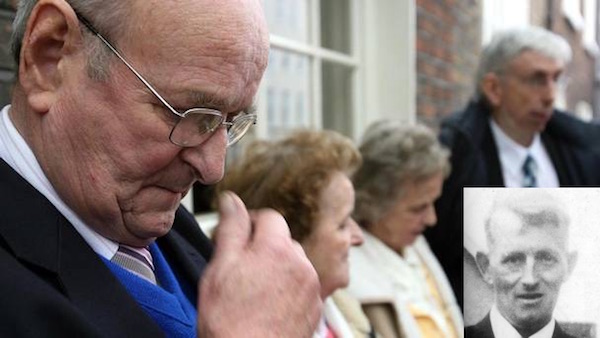
The unexplained halting of an investigation into the murder of an Irish forestry worker is a scandal which goes to the highest levels of police and government, Dublin’s High Court has heard.
The 1976 killing of Seamus Ludlow was heard in a courtroom for the first time this week. His nephew has brought the family’s four-decades-old fight against an apparent cover-up to the High Court in Dublin, where they are seeking a declaration that the 26 County government’s failure to launch a state inquiry is unlawful.
Mr Ludlow, a 47-year-old bachelor, was shot dead as he was returning home from a pub in Dundalk, County Louth, on May 2 1976. Those responsible are now believed to include British soldiers and loyalist paramilitaries based north of the border, but at the time it was reported he had been killed by the IRA as an informer.
The gravity of the allegations involved demanded a proper inquiry. Ronan Lavery QC said.
“The failure in conduct of gardai after the killing, in smearing Seamus Ludlow’s name, must rank among one of the more shameful episodes that could be laid at the door of the state,” he said.
No-one had been able to say why documents went missing, and everything he said pointed to some sort of cover-up up to the highest levels of the gardai and the government.
“The most disturbing aspect of this case is the evidence of a policy being in place, for whatever reason, that suspects would not be interviewed north of the border and the investigation would not be pursued because of some kind of perceived national interest at that time.
“This was a dirty war, judge. The sectarian hatred moved south on that day in 1976. Mr Ludlow was the victim, but was it that the national interest so outweighed the right of the family to have a proper investigation into his murder?
“Was there a policy in place, and as a result of the policy, did that mean the family’s right, [Mr Ludlow’s] rights were expendable and justice could be dispensed with?”
The barrister added: “These are weighty matters and they are crying out for an investigation.”
The failure of gardai to question a group of eight SAS men discovered south of the border shortly after the murder during an apparent incursion was also criticised.
The court also heard how Mr Ludlow’s brother-in-law, the late Kevin Donegan, who lived in the Six Counties, was bizarrely kidnapped and airlifted to Bessbrook British army base where he was quizzed for more than hour by a British army interrogator about the Garda investigation into the murder.
“It is not just in the interest of the Ludlow family to look at this, but it is in the interests of every citizen to examine this closely,” Lavery concluded.
Pointing out that an inquiry was being considered for the Olympics ticket-touting affair, he said the Justice Minister’s failure to hold a commission of investigation into events around the killing “flies in the face of reason”.
Mr Ludlow’s family say Garda police were behind a smear campaign wrongly alleging the murder was carried out by the IRA. The RUC police in the North later named four men it suspected of being involved in Mr Ludlow’s killing, but the information was not pursued by the Garda at the time. Two of the men were British soldiers of the Ulster Defence Regiment.
The family was told by a local garda that the murder probe was suspended without explanation three weeks after it started on orders that “came from Dublin”, the court was told. No one has ever been charged with the murder.
Judgement was reserved. Speaking for the Ludlow family, Gavin Booth of KRW law firm in Belfast, said outside the court it was unfortunate the family “had to take these steps”.
“But it is important that justice is done and seen to be done,” he said.
“Every day the Taoiseach and Minister for Justice delay, it causes further grief and distress for a family that has been through so much at the hands of the state.”
![[Irish Republican News]](https://republican-news.org/graphics/title_gifs/rn.gif)
![[Irish Republican News]](https://republican-news.org/graphics/title_gifs/harp.gif)

